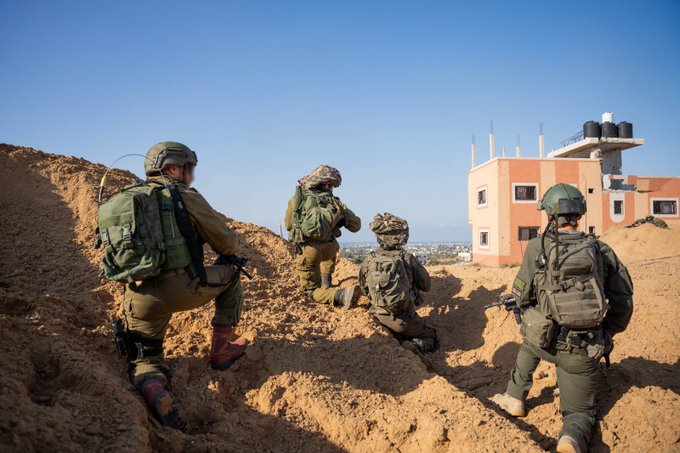While the IDF has gained control over significant portions of the northern and southern regions of the Gaza Strip, the two main goals—overthrowing Hamas’ rule and dismantling its military infrastructure, along with securing the release of Israeli hostages—remain elusive.
Senior IDF officials estimate that another month and a half may be required to topple Hamas’ rule.
Though there have been partial achievements, such as pressuring Hamas into releasing some Israeli hostages through military operations, approximately 140 hostages remain in captivity.
Efforts to secure their release have yet to yield success.
Military pressure continues, particularly in Khan Yunis, focusing on achieving either a new prisoner exchange deal or eliminating the Hamas military leadership hiding in the area.
Despite Israeli military pressure, Hamas persists in launching rockets, showcasing its resilience to the residents of the Gaza Strip and the international community.
Defense Minister Yoav Galant notes signs of weakening in Gaza, but the war’s duration remains uncertain.
The toll on the Palestinians is substantial, with over 17,000 reported dead and 48,000 wounded, according to the Palestinian Ministry of Health.
Tzachi Hanegbi, the national security adviser, asserts that at least 7,000 terrorists have been eliminated.
Israel faces a critical juncture with a month-long opportunity before President Biden’s presidential campaign begins.
Afterward, a shift to limited raids may be mandated.
The IDF grapples with the formidable challenge of overcoming Hamas’ extensive tunnel network, funded by Qatari resources, spanning 500 km and serving as a hiding place for armed terrorists and Israeli abductees.
Despite the complexity, the IDF proceeds cautiously in its operations.
The difficulty lies in avoiding traps within the tunnels that pose serious threats to soldiers.
The Israeli Air Force has conducted over ten thousand attacks, necessitating urgent ammunition support from the US.
Hamas’ thorough preparation, particularly its tunnel system, caught Israeli intelligence off guard.
The IDF struggles to devise effective engineering solutions.
Hamas maintains a robust fighting spirit, controlling familiar terrain.
While half of the top Hamas military leaders have been eliminated, key figures like Yahya Sinwar, Muhammad Daf, and Marwan Issa remain elusive.
The political leadership’s commitment to continuing the war is uncertain amid increasing international pressure.
A premature cessation without achieving goals could be perceived as a defeat, emboldening Hamas, Hezbollah, and other Iran-affiliated groups in the region.
Each day of conflict extracts a high economic cost of around $270 million for Israel, adding urgency to achieve war goals promptly.
Washington supports Israel’s objectives, intending to leverage them for its political plan to establish a Palestinian partner for a two-state solution.
The Palestinians in Gaza have yet to surrender, but a shift in this stance may occur with correct Israeli actions.
Israel must make a decisive military determination to imprint on the Palestinian consciousness that Hamas’ initiation of the conflict and massacre of Israeli civilians was a grave error.
The people of Israel demand a clear victory, seeking retribution for the actions of Hamas and the restoration of national honor, resonating throughout the Middle East.
The government is urged to pursue this path decisively.




